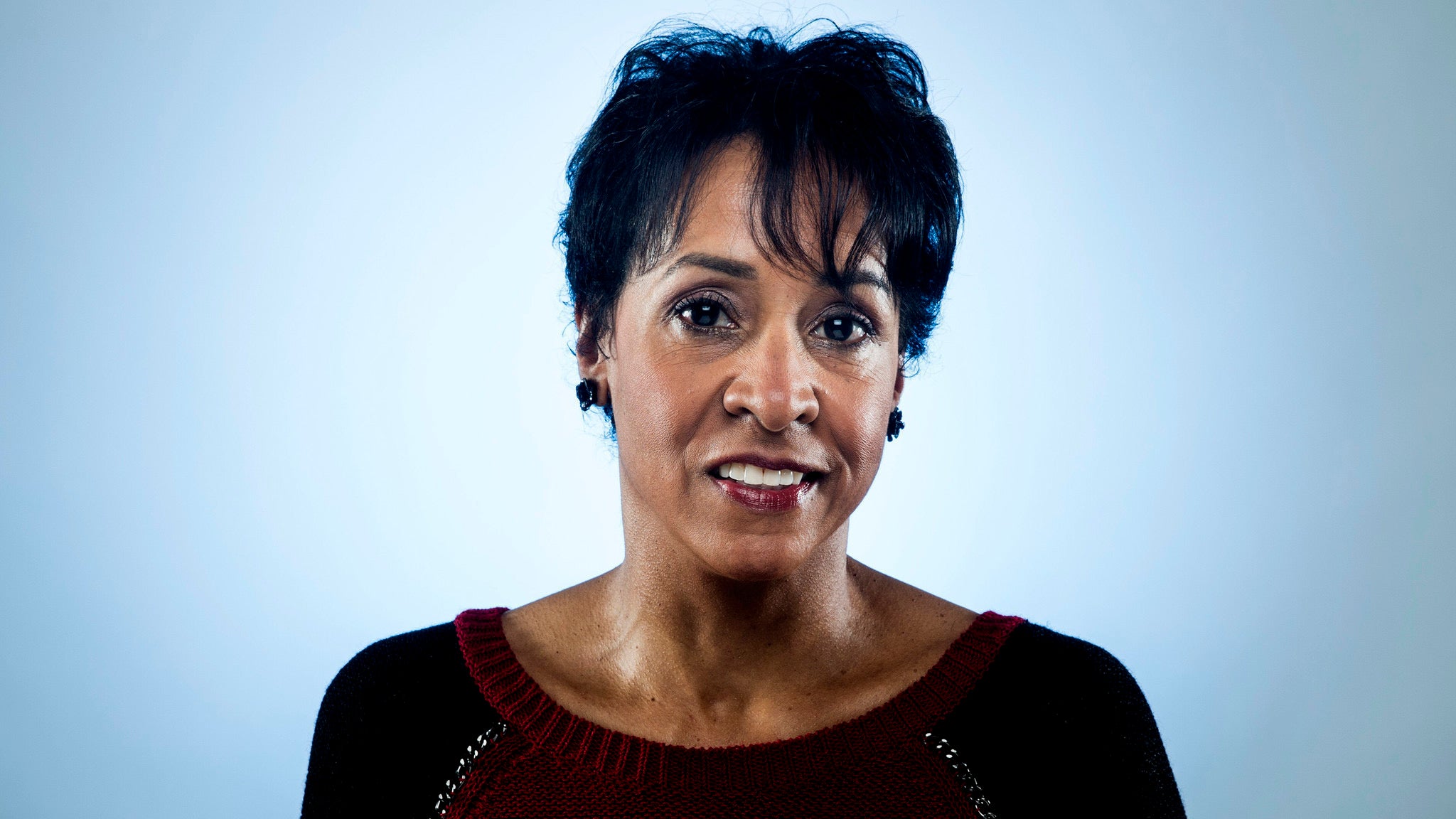LA riots: 'The Rodney King verdict felt like an earthquake' recalls Pulitzer-winning journalist
Interview: For first time in her career, reporter says she temporarily stepped outside ‘journalist’s body’
Your support helps us to tell the story
This election is still a dead heat, according to most polls. In a fight with such wafer-thin margins, we need reporters on the ground talking to the people Trump and Harris are courting. Your support allows us to keep sending journalists to the story.
The Independent is trusted by 27 million Americans from across the entire political spectrum every month. Unlike many other quality news outlets, we choose not to lock you out of our reporting and analysis with paywalls. But quality journalism must still be paid for.
Help us keep bring these critical stories to light. Your support makes all the difference.
Sandy Banks was in the newsroom of the Los Angeles Times when the not guilty verdict came back on four white police officers charged with beating black motorist Rodney King.
The jolt after seven days of deliberations from the courtroom in Simi Valley – an overwhelmingly white neighbourhood 30 miles northwest of the city to where the trial was moved at the request of the defendants – was so sharp, she says, it felt like an earthquake.
One of a small number of black reporters at the newspaper, Banks stood stunned and burst into tears. As editors rapidly began handing out assignments, Banks told them she wanted none of them. She wanted to go and join the people already throwing rocks.
“It was the first time in covering a story where I just felt I was out of my journalist’s body, and just in my human being body. The white reporters all around were also stunned, but also very uncomfortable,” she says.
“The one thing I’ll always remember, is one white reporter … she just stopped me in the hall and hugged me and said ‘I’m so sorry. I’m so sorry’. And for me, it was like, here’s somebody that I understand. She’s apologising on behalf of those jurors in Simi Valley, and she understood the personal blow it was.”
Banks, 65, says she drove home that evening to her home in the San Fernando valley, itself more white than it is now, wept with her husband, and tried to focus on a daughter’s upcoming birthday party. They held it that weekend in a park, overlooking the smouldering city, as she listened to well-meaning white mothers say how they wished the video of King’s beating had never been made public.
It was those remarks – not that the women had wished the white officers had not beaten King, but that the evidence had not emerged and triggered the violence – that helped cement Banks’s decision that she had to go back to newsroom and ensure the story was reported fairly.

It was not enough to write about the looting and killing. It was also important to focus on the black business owners who had suffered, the black schoolchildren likely to endure trauma, as well as the multi-ethnic force of volunteers who turned out to clean up the damage. What image did you put on the front page – a looter wearing a bandanna, or people helping each other?
The story was complicated, ugly, painful and complex. Banks and her colleagues won a Pulitzer Prize.
Speaking from Los Angeles where she remains a journalist, she says the riots forced changes on many institutions, most notably the Los Angeles Police Department, which she says was woefully ill-prepared for what took place, as well as the media, too white then and too white today.
She stresses the police should have been preparing for something to happen, as the trial of the four officers – Stacey Koon, Laurence Powell, Timothy Wind and Theodore Briseno – drew to a close.
The black community rioted, she says, not when the beating of King by the officers was shown on television, but when the system failed to deliver justice. “It was when we finally realised we could not trust the system.”
Banks says the African American population of Los Angeles now stands at around nine per cent, having seen a large increase in Latino and Asian Americans.
She says some things have improved. There is more money, more development, more investment. But access to good schools, supermarkets with fresh food and affordable healthcare remains a challenge. Black students perform worse than others.
“In many ways things have got better. In that sense the riots were a wake up call,” she says.
Asked what she now takes away from covering the riots and the community, she chooses her words with care.
“I always saw the riots, as horrible as they were, as a necessary force, because at some point you have to stand up and say 'no more'. This is not to minimise the deaths and the losses, and it was horrible,” she says.
“But we were brought to that point after decades of being ignored, of being disenfranchised. So it was a necessary thing. And, and on some level I felt a sense of pride.”
She adds: “I know that sounds weird, but it’s like when the bully is after you in school all the time, day after day and mocking you. And then suddenly you turn on them and beat the crap out of them. And yeah, you get suspended. But, you know, he doesn’t bother you anymore. That’s kind of how I saw it.”
Subscribe to Independent Premium to bookmark this article
Want to bookmark your favourite articles and stories to read or reference later? Start your Independent Premium subscription today.

Join our commenting forum
Join thought-provoking conversations, follow other Independent readers and see their replies
Comments